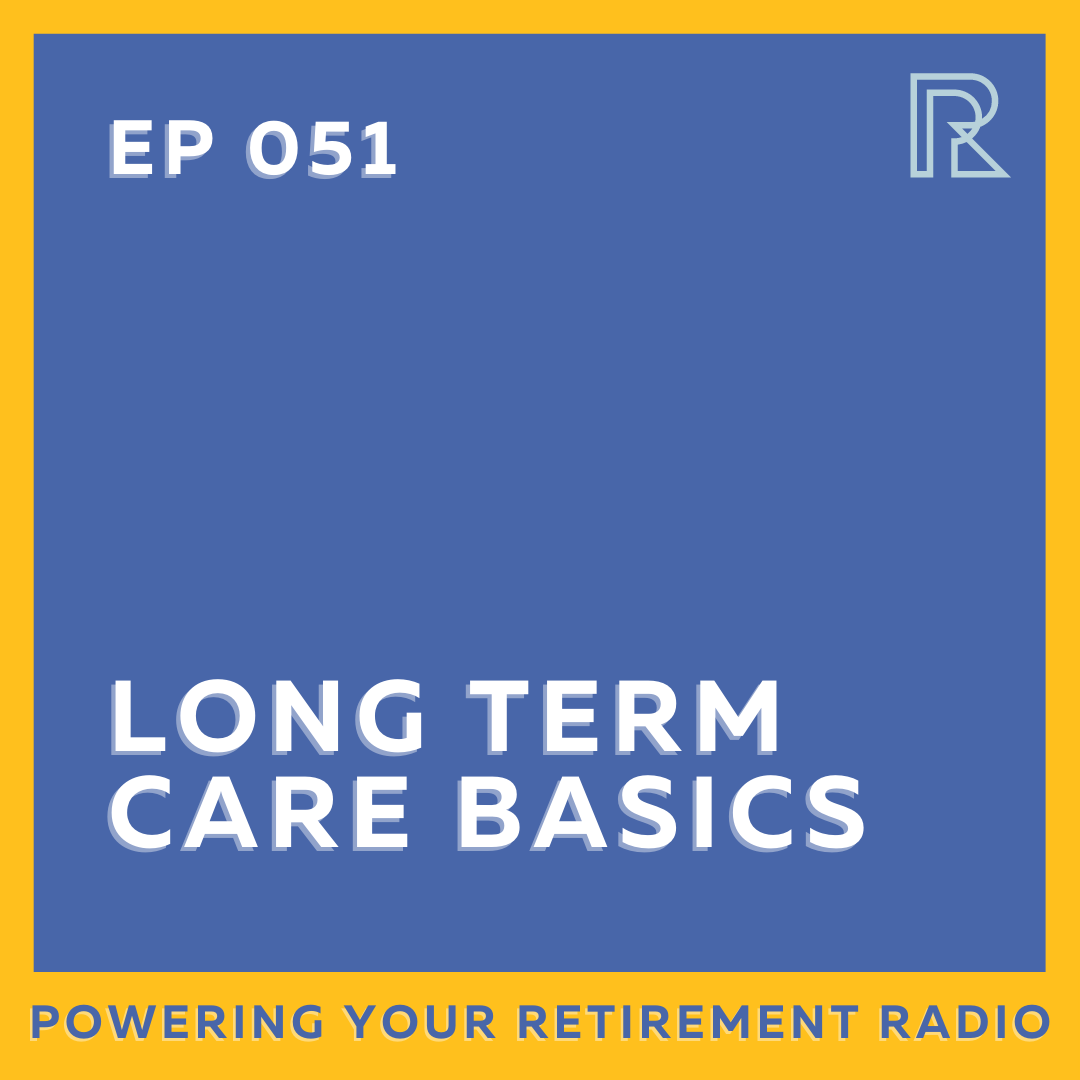Long Term Care Basics

March 9, 2023
Welcome back to Powering Your Retirement Radio I want to discuss Long Term Care or Extended Care. This is insurance and not an investment. Insurance, in the long run, is better to have and not need, than to need and not have. It is also better to buy it before there is a need because, at that point, it is either very expensive or not available.
So why do you need Extended Care Insurance? You need it because of the unknowable circumstances around your future health, not just yours but, if you are married, your spouse as well. As counterintuitive as this sounds, Extended Care Insurance is not for someone who falls ill or needs care. It is for the surviving spouse. I hear all of the jokes and uncomfortable laughter around; they’ll hold a pillow over my head… No, they won’t.
Extended Care isn’t just for end-of-life situations. It covers you if there is a car accident, if you have a stroke or if some other issue where you need prolonged care during your recovery. No one wants to be a burden to their children, and even fewer people want to leave a healthy spouse without enough money to live on because the assets went toward their care.
So what is there to do? There are a few options, including Traditional Long Term Care Insurance, which is not very popular, but still available. There is Hybrid Life Insurance that provides a Long Term Care Rider. And finally, there are Long Term Care Annuities.
Here is a quick overview, which will hopefully give you enough information to determine what makes sense for you. As always, I am happy to chat if you have questions.
Traditional Long-Term Care Insurance: This is what most people think of. It’s a use-it-or-lose-it policy where you pay in for your lifetime, and if you never need it, there is nothing to be paid out. This is the insurance I personally own, only because I got it when I worked at Genworth, and it was inexpensive at the time. Given the cost of care, my premiums over my expected life span will equal roughly 6 months’ worth of coverage in a nursing facility. Since the average stay is 3 years, I am comfortable with the fact that I have it, even if I don’t need it.
Hybrid Life Insurance with a Long-Term Care Rider: This is a life insurance policy with a death benefit that can be converted to pay for long-term care needs if needed. The good part is that if you need long-term care, you have a predetermined amount of coverage. If you don’t need it, there is a death benefit for your heirs, so the money you paid in premiums is not a sunk cost you can’t recover. If you collect on the death benefit, you don’t lose your money, but the growth of the funds is more like investing in a CD rather than the market. The key is that you have protection since you have insurance and you aren’t spending the assets meant to provide your retirement income. This can be purchased over your lifetime or a set number of years, usually 10 or 20 and you are subject to underwriting on these policies.
Annuities with a Long-Term Care Rider: These are usually on a fixed or index annuity and are purchased with a lump sum with some kind of multiple, say 1, 2, or 3 times the amount deposited if you need long-term care. So you invest $100,000 in the fixed annuity, and it grows like any other fixed annuity, and like the hybrid policy above, if there is a need for long-term care, the multiplier kicks in, and your $100,000 now covers $200,000 or more of long-term care bills. There is some underwriting, but it generally has a better issue rate than the hybrid or traditional policies.
The quick recap is that a traditional policy is less expensive than a hybrid policy, but with no way to recoup the expense if you don’t need it. Hybrid is good for a person who is a planner but wants some protection. The caveat is that you also need to be insurable. The annuity will likely get you coverage in a situation when you can’t get a hybrid policy, but you need to have a larger sum of money all at once. All three will help you protect your assets in the future, but you need to apply and go through the process.
A final thought, the people most interested in long-term care are the ones who have seen a parent, spouse, or another relative need care and know what the costs are. If you want to see for yourself, here is a link to the Genworth Cost of Care Website.
Leave a Reply Cancel reply
subscribe to my newsletter
© 2022 Powering Your Retirement | Legal | Brand and Website by Lyss House Creative